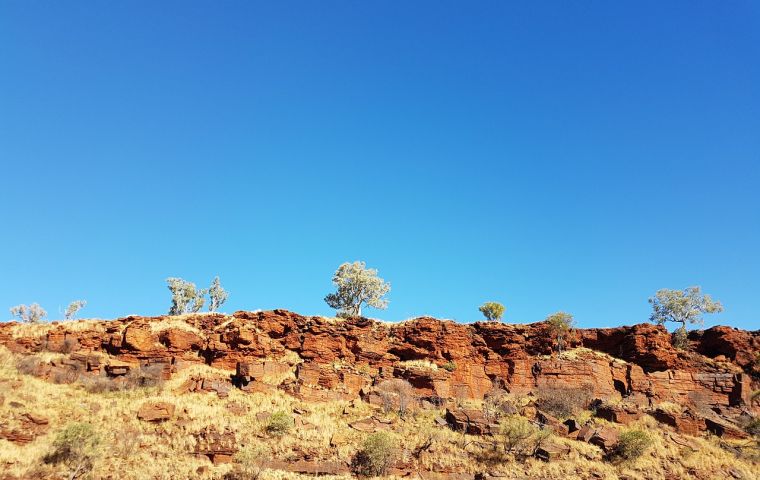MercoPress. South Atlantic News Agency
Mining giant Rio Tinto admits blowing up ancient Australian aboriginal rock shelters
 Traditional owners said the culturally significant cave in Juukan Gorge, Western Australia, had been destroyed in a “devastating blow” to the community.
Traditional owners said the culturally significant cave in Juukan Gorge, Western Australia, had been destroyed in a “devastating blow” to the community. Anglo-Australian mining giant Rio Tinto has admitted damaging ancient Aboriginal rock shelters in the remote Pilbara region in Australia, blasting near the 46,000-year-old heritage site to expand an iron ore mine.
Traditional owners said the culturally significant cave in Juukan Gorge, Western Australia - one of the earliest known sites occupied by Aboriginals in Australia - had been destroyed in a “devastating blow” to the community.
Explosives were detonated near the site on Sunday in line with state government approvals granted seven years ago, Rio Tinto said in a statement.
“In 2013, ministerial consent was granted to allow Rio Tinto to conduct activity at the Brockman 4 mine that would impact Juukan 1 and Juukan 2 rock shelters,” the spokesperson said, adding the company had liaised with the Aboriginal community.
“Rio Tinto has worked constructively together with the PKKP people on a range of heritage matters under the agreement and has, where practicable, modified its operations to avoid heritage impacts and to protect places of cultural significance to the group.”
Just one year after the blasting was approved, an archaeological dig at one of the shelters uncovered the oldest known example of bone tools in Australia - a sharpened kangaroo bone dating back 28,000 years - and a 4,000-year-old hair plait believed to have been worn as a belt.
DNA testing of the hair had shown a genetic link to the ancestors of indigenous people who still live in the area. The 2014 excavations also found one of the oldest examples of a grinding stone ever found in Australia.




Top Comments
Disclaimer & comment rulesCommenting for this story is now closed.
If you have a Facebook account, become a fan and comment on our Facebook Page!